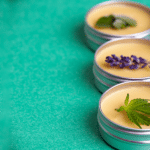I was born with a rare, degenerative hereditary motor and sensor neuropathy called Charcot-Marie-Tooth (CMT), a disorder of the peripheral nervous system characterized by a progressive loss of muscle tissue and touch sensation across various parts of the body. It wasn’t until I was 12 years old that I was diagnosed with Charcot-Marie-Tooth and for the following 22 years I have faced enormous challenges because of Charcot-Marie-Tooth and cannabis prohibition.
I was later diagnosed with scoliosis, arthritis and degenerative disk, as well. I have suffered numbness and loss of sensation, loss of muscle tissue, extreme fatigue, shaking hands, hypersensitivity to cold, and blackouts due to excruciating pain. The things I once took for granted like being able to wear heels, run, jump, climb, snowboard, ski, button a shirt or pants, turning a lamp light on, sleeping through the night without waking up multiple times in terrible pain, painting, writing, grasping and opening a can or bottle of anything, holding a pencil, putting on mascara, pretty much anything that requires the use of my hands, feet, legs and arms … I’ve had to adjust to cope with all these challenges for the past 22 years.
And, of course, with all this comes depression.
Shortly after the diagnosis of Charcot Marie Tooth, I was placed on prescription medications to help control the pain. The medications helped ease the pain for a short period but there were side effects with these pharmaceuticals and the pain meds did nothing for many other symptoms I was having. I was also taking ibuprofen on a daily basis. All these medications had adverse side effects, including organ damage, which scared me and made me think there had to be a better way.
As a teenager, I tried cannabis and it helped with the majority of my symptoms and there were no noticeable negative side effects. However, my treating physicians were strongly against the use of cannabis, which is illegal in Tennessee, my state. So I continued to take the medications they prescribed until 2014, when I received test results that I knew weren’t going to be good. But I didn’t expect the test results to be as bad as they were:
Findings
The right sural, ulnar, and median sensory studies show no response. The right peroneal, ulnar, and median motor studies show markedly prolonged distal latency, reduced amplitude, and uniform slowing with conduction velocities mainly in the 12-14 m/s range. A needle EMG was considered but was not felt to be helpful in this patient’s case, due to the specificity of these findings.
Interpretation
This abnormal study shows electrodiagnostic evidence of a severe sensorimotor demyelinating polyneuropathy with uniform slowing. This is consistent with a diagnosis of Charcot-Marie-Tooth disease, one of the subtypes with uniform dysmyelination. It is noted that many patients with CMT 1A have conduction velocities in the low 20 m/s range, and while 12-14 m/s is not as common, it has still been reported as low as 7 m/s in CMT 1A. Other subtypes of CMT 1 are also possible, and far more likely than an acquired form of demyelinating polyneuropathy.
After receiving this report and reflecting on my life and how I had accepted what treating physicians had been telling me for over a decade – “You cannot use cannabis because it is illegal” and “There is nothing you can do to slow or reverse the damage” – I decided to stop going to those physicians and to use cannabis medicinally because I knew firsthand that it helped. And I didn’t experience any bad side effects from cannabis.
I knew if I continued to take the pharmaceuticals I was taking, I would die way sooner than I should.
When I first started using CBD-rich products, I began with 50mg of CBD full spectrum oil twice a day. I eventually added a 4:1 (CBD:THC) vape session 6 times per day. I saw some benefits, but I decided to gradually increase the amount of CBD in my daily regimen.
I am currently taking 75mg of a full spectrum CBD-rich oil extract 3 times per day. I am also vaping a 1:1 CBD:THC cannabis oil cartridge intermittently throughout the day (8-10 times) and a 18:1 CBD:THC cannabis oil cartridge 3 times per day. I feel like this is the best regimen for me at this point in my life. I also use a 1:1 pain stick when my joints or muscles hurt, especially after long drives or other instances where I’m stuck in a standing or sitting position for prolonged periods.
Based on my own experience, I strongly believe CBD needs THC to be as effective as possible. I have found that a higher CBD concentration with lower THC concentration works best for me. Low CBD concentrations and CBD alone aren’t nearly as effective or beneficial as the high CBD remedies with a low-moderate amount of THC.
Over the past 4 years of using both CBD and THC, I haven’t experienced a single episode of excruciating, breakthrough pain at night or any other time for that matter. My hands don’t shake as bad, my feet seem to have more sensitivity, my muscle cramps are non-existent, my appetite is wonderful, my depression has drastically decreased to a point that its rarely noticeable.
I fall less and feel as though I am far less clumsy than I was 4 years ago. I can walk further and even run for short periods, I can jump again, my ankles aren’t as weak as they were 4 years ago either. I’m able to turn lamps on and off and open bottles easier. I can button shirts and pants easier. I can braid my hair. I can peel an apple. I sleep through the night. The pain throughout my body is minimized so it’s almost non-existent. My skin has improved, my headaches have disappeared, the pins and needles are gone, too. My bones, joints, and spine have for the most part stopped hurting. And when they do hurt, the CBD-and-THC quickly eases that pain.
I can only imagine how much better my health and quality of life could have been had CBD and THC been recommended to me by treating physicians as a child instead of putting me on pharmaceuticals that did nothing to help improve my disease during 22 years of use, while causing additional problems due to adverse side effects.
Today, I’m doing much better than I ever was while taking prescription pharmaceuticals. Thanks to cannabis, I’m not as fatigued. I can focus easier and I have more energy. I am more productive and my work performance has improved. My memory is clearer. My coping skills have improved drastically. I no longer wake up each morning feeling like I’m a day closer to being in a wheel chair. I now wake up feeling like each day I am pushing that wheel chair date further and further away.
I plan on having another EMG test in March 2019 – the first since 2014 – to see if my improvements can be measured, something that’s supposedly scientifically impossible. Yet I’m feeling better. We’ll see if the EMG will reflect this miracle.
I hope that my story helps others who face similar challenges. I hope my story helps to educate those who misunderstand cannabis while at the same time helping researchers learn more about the therapeutic value of this plant. And I hope my story can help educate policy-makers who continue to support the prohibition of cannabis.
For twenty years, while struggling with a devastating illness, I’ve had to break the law and go to great lengths to find and use a safe, natural remedy. For me and countess others, cannabis prohibition has made a very difficult situation even worse. It is hard not to be angry about this. I believe CBD, and the cannabis plant in general, could help people treat many diseases and disorders, including mental illness. I believe it could be key to mounting an effective response to the opioid epidemic and the prescription drug crisis this country is currently experiencing.
High quality CBD-rich products should be available in as many stores for as many people as possible. It is an amazing, miracle medicine and I will continue to do my part to raise awareness and fight for the legalization of cannabis – the entire plant, not just CBD – because it works and it will save lives.
Laura Lucas lives in East Tennessee, where medical cannabis is illegal. She is a passionate outdoor explorier, activist and photographer with an entrepreneurial focus on nutrition, well-being and design.







